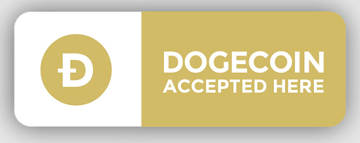Looking at more banks in America burning in flames I was curious to learn about what countries think about our current sition in America. To my surprise I learned several countries are looking to go their own way in the global economy and denounce the U.S dollar as global reserve currency. Finding this out brought up a few questions in my mind.
1. What countries are trying to denounce the U.S dollar as global reserve Currency?
2. What country is most likely to be the next Global Reserve currency?
3. Why does Europe want to get off the U.S dollar as a global reserve currency?
4. Why does Africa want to get off the U.S dollar as a global reserve currency?
What countries are trying to denounce the U.S dollar as global reserve Currency?
China: China has been promoting the use of its currency, the renminbi, in global trade and finance to reduce its exposure to fluctuations in the US dollar.
Russia: In recent years, Russia has been actively reducing its holdings of US dollars and increasing its holdings of gold and other currencies, such as the euro and Chinese yuan.
Iran: In response to US economic sanctions, Iran has been exploring alternative currencies and payment systems to reduce its reliance on the US dollar.
Venezuela: Due to US economic sanctions and political tensions, Venezuela has been attempting to reduce its dependence on the US dollar and has been exploring alternative currencies, such as the Chinese yuan.
Turkey: Turkey has been exploring ways to reduce its reliance on the US dollar in response to political tensions with the United States and economic challenges.
There are several reasons why some experts predict that China's currency, the renminbi (RMB), could become the next global reserve currency:
Economic Size: China has the world's second-largest economy, which is expected to surpass the United States in the coming years. This economic size gives the RMB a solid foundation as a potential global reserve currency.
Trade and Investment: China is the world's largest trading nation, and its currency is increasingly being used in global trade and investment. This increased use of the RMB in trade and investment could help promote its adoption as a reserve currency.
Internationalization: China has been working to internationalize the RMB by establishing offshore RMB markets, signing currency swap agreements with other countries, and promoting its use in trade settlements. This internationalization could help increase the use and acceptance of the RMB as a global reserve currency.
Belt and Road Initiative: China's Belt and Road Initiative (BRI) is a massive infrastructure and investment project that aims to connect Asia with Europe and Africa. The BRI could help increase the use of the RMB in countries participating in the project, which could further promote its adoption as a reserve currency.
Diversification: As mentioned earlier, several countries are exploring ways to reduce their dependence on the US dollar and diversify their foreign exchange reserves. In this context, the RMB could become an attractive alternative for some countries looking to diversify their currency holdings.
Why does Europe want to get off the U.S dollar as a global reserve currency?
Economic Sovereignty: Some European countries and entities, such as the European Union, have expressed a desire to increase their economic sovereignty and reduce their reliance on external economic factors, such as the US dollar.
Trade and Investment: Europe is a major trading partner of the United States, and some European countries and entities have expressed concern about the potential impact of US trade policies and sanctions on their economies. By reducing their dependence on the US dollar, they may be better able to withstand the potential impact of US trade policies.
Geopolitical Factors: Some European countries and entities may be concerned about the potential impact of US geopolitical policies on their own security and stability. By reducing their dependence on the US dollar, they may be better able to assert their own interests and autonomy in international affairs.
Alternative Reserve Currencies: The increasing use of alternative reserve currencies, such as the euro, Chinese yuan, and Japanese yen, may provide more opportunities for European countries and entities to diversify their foreign exchange reserves and reduce their dependence on the US dollar.
Why does Africa want to get off the U.S dollar as a global reserve currency?
Historical Legacy: The United States, like many Western powers, has a complex history of colonialism and exploitation in Africa that has left a lasting impact. This legacy can contribute to negative perceptions of the United States among some Africans.
Foreign Policy: US foreign policy in Africa has been a source of controversy, with some criticizing US interventions in African conflicts, military operations, and support for authoritarian regimes.
Perceptions of Racism: There have been instances of racism and discrimination against Africans and people of African descent in the United States, which can contribute to negative perceptions of the country.
Media Portrayals: The way that the United States is portrayed in African media can also influence perceptions of the country. Negative portrayals of the United States in African media may contribute to negative perceptions among some Africans.
Cultural Differences: Cultural differences and misunderstandings can also contribute to negative perceptions of the United States. For example, some Africans may see American culture as overly individualistic and materialistic, which can be seen as incompatible with African values.
It is clear that other countries have seen signs of weakness within our economy for several of year's now.I am no financial advisor but learning more about other countries and companies who manufacture more of their products outside of America like Tesla or Apple for example could be more profitable long term in the next 10 to 20 years.

.jpeg)






No comments:
Post a Comment